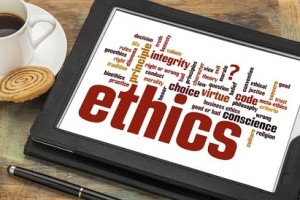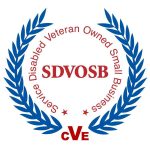by jcooper131 | Aug 26, 2017 | Houston Mediation and Arbitration

Abigail Adams, the wife of John Adams our second president, was his intellectual equal. They wrote each other frequently when they were apart because they trusted each other’s judgement. In one of her letters she wrote, in part, “…How difficult the task to quench the fire and the pride of private ambition, and to sacrifice ourselves and all our hopes and expectations to the public weal! How few have souls capable of so noble an undertaking!”
Ethics and ambition will be in conflict with each other if a leader is not the master of his ambition. There are two kinds of leaders; one kind keeps his/her integrity intact, and the other type of leader does not.
The one who does keeps it close and guards it. It is OK if it is a little tattered around the edges and maybe holding a patch or two, but it is essentially all there. The one who does not keep his integrity intact sheds pieces along the way so that when that leader reaches the position he or she holds, there is a real question whether or not they can conduct themselves in an ethical manner.
I think the verdict is clear. Just in the past five years you can find real life examples of corporate leaders who failed in spectacular fashion.The seeds of their destruction was a result, in large part, to their unethical conduct. They chose the easy path instead because it looked like the fastest way out of a dilemma. Yet solutions that often seem to be a way out of a dilemma create opportunities for inappropriate behavior.
It leads to policies that, instead of creating innovation and growth, function as a shield allowing directors and managers to engage in behavior that is self-serving and unethical.
How many of you have heard the phrase honest to a fault? All us deal with a lot of noise in popular culture. With great sound and fury we demand that our leaders must be as close to perfect as possible. Yet, even the best of us lead imperfect lives, and the successful leader is one who catches his/her mistake and quickly corrects it. Good leaders do not allow gaps to form between the error and the action to correct the mistake.
How can you be sure you are doing everything you can to keep your integrity intact? Review the absence of the word “morality” in the business environment. This word gets very little attention in within the business community and this is ultimately harmful. This is not about forming judgements or replacing standards of behavior. It is about the moral dimensions of what they are doing. A leader cannot build an ethical culture in his organization without understanding the foundation on which ethics rests.
Want to know more, call us at 832-452-8537, write to us at info@cdci-mediation.com.
by jcooper131 | Apr 17, 2017 | Houston Mediation and Arbitration
 In my book, which will be available through Amazon Kindle in about three months, if not sooner, I talk about the fact that many companies say they are customer focused, but they aren’t. They say they are committed to under-promising and over performing. They point out, often with much fanfare, that they have strong compliance programs and have a solid ethical foundation. They spend millions of dollars each year selling that message – until things fall apart.
In my book, which will be available through Amazon Kindle in about three months, if not sooner, I talk about the fact that many companies say they are customer focused, but they aren’t. They say they are committed to under-promising and over performing. They point out, often with much fanfare, that they have strong compliance programs and have a solid ethical foundation. They spend millions of dollars each year selling that message – until things fall apart.
It turns out it’s a fancy façade on a structure that is deeply flawed. One day the façade collapses and the structural flaws are glaringly obvious. A few months ago, we turned on the TV or opened the newspaper and read how Wells Fargo had, over a number of years, stolen money from millions of accounts, and now we see United Airlines in the midst of a disaster the scope of which will not be known for months.
It is safe to say that the credibility of both companies is non-existent. Wells Fargo is a company that has been around for more than 140 years, and they will do what it takes to rebuild its reputation. It will be a long-term effort but they have every reason to succeed. United Airlines presents us with more questions than answers at this point. But in its own way this failure is every bit as stunning as something pulled from the pages of a melodrama.
When I discuss ethics and integrity training with executives and managers , I am often confronted by a check the box mentality. I sometimes need to remind these men and women that they work in a high risk environment and the existence of compliance programs, ethics policies, written standards of behavior, and even training programs are not guarantors of success. That compliance failures and ethical lapses are just one bad decision away from erasing all hard-won gains. These failures often occur because they don’t look at ethics and integrity with a focus on the human factor.
Want to know more about our approach to ethics and integrity training? I invite you to take a few brief minutes and visit our website. Our approach is designed to reduce the impact on the time of executives and managers. Take a moment to view our upcoming training event in early May, and we will be happy to answer any questions you have.
by jcooper131 | Mar 2, 2017 | Houston Mediation and Arbitration

In a recent article I read, the author talked about how technology is disrupting the way work is done both nationally and internationally. Companies like Facebook and Uber have, within a few short years, achieved market values greater than 80 percent of the companies on the S&P 500. They have corporate structures, processes, and systems, but unlike the large corporations that have been around for decades, they do not have thousands of employees.
More than just the computer, technology is disrupting business models across the world and rendering many traditional methodologies obsolete. Brick and mortar stores like Macy’s and jcpenney are struggling to create new workable models in an environment where technological innovation is forcing a brutal transformation.
Add to this many companies are merging, and their organizations are growing more complex as their size increases. Managing these larger, more complex organizations successfully is a daunting task. Managing Ethics and Integrity issues in these demanding times also grows more challenging. The near constant demand to control costs in a low growth, low profit world puts intense pressure on companies to find savings. Many times training programs of all kinds become an easy target; ethics and integrity training included.
This unrelenting pressure claims high-profile victims every year. Whether it’s Wells Fargo Bank’s epic ethics failures, or MD Anderson’s failure to follow basic rules in placing millions of dollars in contracts involving a state of the art technology created by IBM, the number of companies that fail to comply with their compliance obligations grows each year. There is an area of risk that risk managers content with almost daily. Regardless of the fact that most companies have a range or resources that focuses on compliance and ethics, they do not provide certainty. The number of companies that must work under a Consent Decree or Deferred Prosecution Agreement give proof to that reality.
The list of companies that fail to meet requirements and standards grows every year, and companies struggle every day to avoid being added to the list. The question one needs to ask is if the old business models are being transformed as we speak, why do so many companies still rely on canned training programs that drive managers and employees to check the boxes at the appropriate places?
If the example of Wells Fargo and dozens of other companies teach us anything, it is that existing programs do not drive the cultural changes necessary for modern complex organizations to succeed long-term. We at The Ethics Workshop believe that a series of relatively small incremental steps, consistently applied and reinforced over time, will sow the seeds for real cultural changes in this demanding environment. We invite you to reach out to us and consider having a brief conversation. You have nothing to lose and potentially something to gain. To learn more please visit our website to view these offerings in more detail.
Each month I remind my readers in and around the Houston area that I support a business cooperative called Services Cooperative Association. SCA is an non-profit entity that helps people become successful business owners and entrepreneurs and it does this through regular workshops and a variety of training options. If you know someone with the desire to start a business, invite them to visit the website.
Food for Thought: Character cannot be developed in ease and quiet. Only through experience of trial and suffering can the soul be strengthened, ambition inspired, and success achieved. (Helen Keller)
by jcooper131 | Feb 8, 2017 | Houston Mediation and Arbitration

Defensive Fort
All across the country in companies large and small annual reviews occur between a manager and the employees reporting under him or her. In the course of conducting this performance review, one of the areas that almost all performance appraisals include is how well the manager and employee communicated.
Whether the person being evaluated got a very good score, or something less, the inevitable result is that the evaluation will leave room for improvement, and will include suggestions to that effect.
But what if you find yourself involved in communication that is not intended to get things done – at least in a way that will advance the goals and objectives that matter. What about communication that does the opposite? In work environments where conflict goes unresolved communication isn’t about getting things done. There individuals begin talking over each other, going around each other, and working at cross purposes. The consequences of unresolved conflicts is significant.
Communication becomes the vehicles by which the combatants in a conflict build their defenses. They defend their positions in a conflict before any consideration about how it affects the work. Any criticism or complaint, no matter how small, becomes an imperative that must first be defended against and then challenged.
In this environment it is critical that encouraging and positive statements be maximized and that body language fully complement the language being used. When there is a disconnect between the words and the speaker’s body language, any effort to de-construct the defenses of employees in a conflict will quickly lose credibility.
Social scientists have developed a significant body of empirical data that non-verbal communication often sends messages more clearly that words. When I am asked by client about assisting in resolving work place conflict, this is one of the areas I focus on almost immediately. I emphasize the importance of choosing carefully how words are used, by whom and where, and review non-verbal elements that can undermine their efforts.
There are many ways that body language can undermine someone’s efforts to resolve a dispute. One of the suggestions I frequently make to managers and supervisors is to always hold those discussion where everyone is sitting in a straight backed chair. Nothing robs a manager’s credibility quicker than the parties in conflict sitting in the manager’s office in “visitor chairs”, and the manager is in a chair where he ca swivel and look away or lean back. Nothing creates a more powerful message of “I am not as involved in this as you” or even worse “I am really being patient here so let’s hurry it up”.
We at CDC Integrated Services are ready to answer questions or to meet for more detailed discussions. Visit us here to find your answers.
by jcooper131 | Dec 27, 2016 | Houston Mediation and Arbitration

Turning the Wheel of Conflict
In mediation disputes the past does matter. Earlier this fall I wrote about the Wheel of Conflict, a concept introduced in a book written by Professors Bernard Meyer and Christopher Moore. In their analysis of conflict, a series of common themes interact with each other; some more heavily than others. Yet, they all play a part in the dynamics of a conflict.
Spin the wheel and the arrow will eventually stop on “history”. What does the history of the parties to conflict tell a mediator about the nature of that conflict? An experienced mediator knows that this is a key element in any conflict and it must be described and expressly recognized so that any decisions reached build important elements of continuity that have value in resolving the conflict.
People that view conflict through the prism of their experience in the business world can have a distorted understanding of how conflict is resolved. For many it is a problem that is taken outside the normal processes so that work can move forward. The fact that it is often moved outside of the normal processes sometimes results in people involved a conflict not having the opportunity to resolve underlying issues; which can color or adversely impact all future relationships involving the parties to the original conflict.
Sometimes the parties to a conflict stay involved all the way to the resolution, and still those underlying issues can remain unresolved. Add to this dynamic the reality that many companies, being sensitive to accountability and diligence concerns, choose binding arbitration which generally solves the immediate issues, but does little to address the root cause of the conflict in the first place.
Some conflicts are easier to resolve than others. Family feuds can last beyond an individual’s lifetime, and the damage can be incalculable. In business disputes the goal is to resolve the conflict in way that preserves the relationship so that the work can move forward without further disruption. They are not necessarily easier to resolve, but the simple fact that people’s careers and livelihoods are often on the line tends to focus one’s attention on search for ways to solve disputes in a business environment.
What the parties to the conflict need to know about the other party matters. Failure to understand the motivations and values of the other party(s) to the conflict will lead to assumptions about the other party that are almost always wrong. The drawing of conclusions will create negative biases that can impede or damage progress, delay resolution of the issues, and even bring about long-lasting harm to a business relationship.
The above cannot be overstated. Whether you Kellogg protecting a cereal brand, Mattel defending a line of dolls, or Oracle protecting its software, the battles are costly, time-consuming, and damaging to the reputations of both parties in these types of disputes.
Mediation is often the overlooked avenue that prevents conflicts from escalating to the point they become a legal precedent or a case study in business schools, and these outcomes are legacies most companies want to avoid.
Want to know more about prevent or mitigating business conflicts? Contact us at www.cdci-mediation.com or by E-mail at info@cdci-mediation.com. We can also be reached by telephone at 832-452-8537.
I strongly support small business development. I do this through the Services Cooperative Association here in Houston. SCA helps people become successful business owners and entrepreneurs. If you work in Houston, Texas have breakfast with us at the Lakeside Country Club on Wednesday, January 11th, 2017. We will be hosting the 34th Annual Economic Forecast. Contact me for a ticket at a reduced price, or learn more about the event here.

by jcooper131 | Dec 27, 2016 | Houston Mediation and Arbitration

Before decisions comes the problem solving
I live and work in Houston Texas as do many of the people who read my letters and follow my blog. Many of you living here work for companies with a focus on or an involvement in oil and gas production. Others work in companies not related to oil and gas, but represent a number of other industries. No matter which industry, most of the companies over a certain size, have the following characteristics in common:
A compliance program conforming to the regulations and rules promoted by either the federal or state government.
An ethics policy
A credo stating the company’s foundational principles
Procedures and guidelines that incorporate clear standards of behavior
Training programs that direct managers and employees in understanding their obligations across a range of ethical issues.
For many companies these are important processes that go back decades. Companies spent tens of thousands of dollars to set up and implement these processes and spend thousands of hours and a significant amount of money each year managing these processes, analyzing and reporting on their adherence to and compliance with these requirements.
Last week I stood next to a client looking at a section of the Interstate that passes in front of his office about 100 yards away and some three stories below us. He noted that the real estate we saw in front of us had changed a lot in the 30 plus years he had been at that location, and that the way he did business had changed even more.
We had just finished a meeting where we were discussing some changes to the way his company approaches ethics training and it was a conversation that had some difficult moments for both of us because his company spent a lot of money to install and implement the processes that are in place and the training that supports it. He was still not convinced of the benefits to his operations.
As we stood there, I asked him to think about the fact that he and I are surrounded by companies that have all the above processes, including his company; all of them trying to get it right. Yet the landscape is dotted with companies that operate under a Consent Decree or Deferred Prosecution Agreement imposed by the Department of Justice because in spite of the above, they didn’t get it right.
That is the harsh reality of today’s compliance environment. It does not matter whether your company is in the oil & gas industry, banking, or retail, none of these processes and programs offer any level of certainty. Given the number of companies that fell short and paid sizable fines, and must now conduct their operations under the watchful eye of the government, the question becomes how to avoid being added to the list. My client thanked me for giving him such a warm and fuzzy feeling and said that perhaps we did need to talk more on the ideas we discussed, and he invited me back in the New Year to talk more.
The people who manage and administer a company’s compliance program well appreciate the difficulties they work under. For them it is a constant search for behaviors behind decision-making that do not conform to the standards, working to re-orient, and train managers and employees not to take the wrong action. Compliance professionals know full well that somewhere someone is taking a shortcut, intimidating an employee, or engaging in any number of actions that lead to unethical conduct, which if not corrected, will result in adverse consequences that are almost always severe and expensive.
Here at the Ethics Workshop, a division of CDCI we help our clients focus on the human factor behind these processes and procedures. In our presentations and training modules we look for ways to have conversations that promote an organic approach to ethics. To learn more please visit our website to view these offerings in more detail.
If you read my letter on a regular basis you know that I support those starting new businesses or looking to grow their business, and I offer that support through an organization called the Services Cooperative Association. The SCA is hosting an economic forecast on January 11, 2017 and the keynote speaker will be Mr. Chris Brown, Houston City Comptroller. Also speaking is Professor Sophi Haci of the economics department of Houston Community College who will give an overview of the Texas economy. It will the 34th year that SCA sponsors this event and I invite you to visit the announcement here to learn more about it and put it on your calendar.
Thought for the day and one of my favorites: “Failure isn’t fatal, but failure to change might be” (John Wooden).







